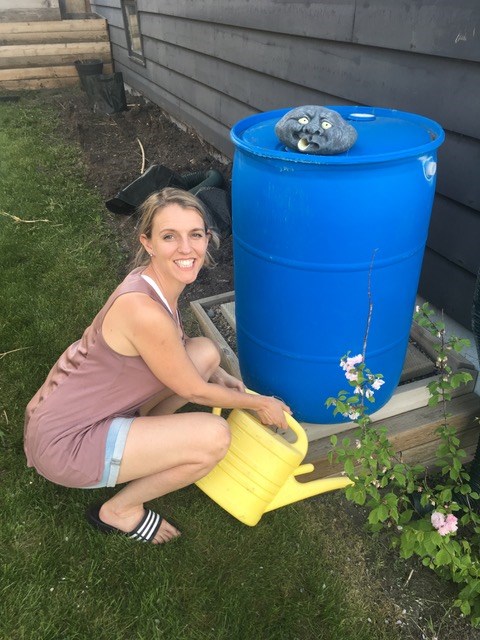Back in the 1950s, when I was growing up, we had a rain barrel in our yard to collect rainwater to use in our gardens, to wash our car and for general clean up.
Somewhere along the line, common use of a rain barrel disappeared.
With the trend of becoming more environmentally sustainable, many home owners are again installing rain barrels.
For those folks who have had a rain barrel in use through our very wet spring, they are already enjoying saving money on their water bill and can be very proud of conserving an over-used non renewable resource.
Canadians are some of the heaviest users of water, using an average of 329 litres of water, per person, per day! We are second only to the United States in the developed world and more than twice as much as Europeans.
Besides keeping money in your wallet and being good for the environment, rainwater is great for your plants too. Water used from a rain barrel is chlorine-free, so can be used on your indoor and outdoor potted plants, as well as your gardens. Municipal water contains chemicals that can build up in the soil and eventually harm sensitive plants.
There are lots of other uses for rainwater, too, like filling up ponds and water features, washing cars, washing windows, cleaning garden tools and equipment and many other household tasks.
Other benefits of installing a rain barrel include decreasing water demand during peak summer months and during times of drought. Using collected rain water also reduces the strain on water treatment facilities and our city’s drainage systems during storms. Rain barrels also help prevent drainage problems around your home’s foundation.
Setting up a rain barrel is easy and only takes a few minutes.
Here are a few things you should think about when you are choosing your location and getting it set up.
• Put the rain barrel in an easily accessible spot and close to where you will need water the most (near your garden or potted plants, for example).
• Make sure the rain barrel is on level ground and sits as level as possible. Water is really heavy and if it is not level, it could fall over once it gets full of water.
• Keep bugs and debris out of your rain barrel by placing an old window screen over the opening.
• Use landscaping blocks or bricks to elevate your rain barrel to help it work better. It will also give you easier access to the spigot to fill your watering cans.
• If you are concerned about overflow from your rain barrel pooling around your foundation, add a downspout attachment that will turn off the flow to the rain barrel once it is full and redirect the overflow away from the house.
The City of Richmond offers a great rain barrel program. Residents of Richmond can purchase a 208 litre (55 gallon) rain barrel for $30. Some of features of the high-quality SYSTERN rain barrel included in the price is that it is made from recycled material and is BPA free. The rain barrel comes with a mosquito mesh that keeps out bugs and leaves. It also has an overflow hose that can be directed away from the house.
The SYSTERN rain barrel has a UV stabilizer added to it to resist deterioration from sunlight along with a unique shape and neutral colour that is suitable for any home and garden.
The SYSTERN rain barrel can be picked up at Richmond Recycling Depot, (5555 Lynas Lane), Wednesday to Sunday, from 9 a.m. to 6:15 p.m. For more information, visit online aty Richmond.ca/CityServices.
So, with water restrictions underway a couple of weeks early and the possibility of some long stretches of hot weather, let’s bring back the rain barrels into our yards.
As you can see, rain barrels are an easy way to help the environment, conserve water and save you money!
Lynda Pasacreta is the current president of the Richmond Garden Club. Richmond Garden Club and the City of Richmond will be hosting a Garden Tour, June 17 of eight distinct and unique private gardens in Richmond. For more information or to purchase tickets, visit online at RichmondGardenClub.ca/Events.



